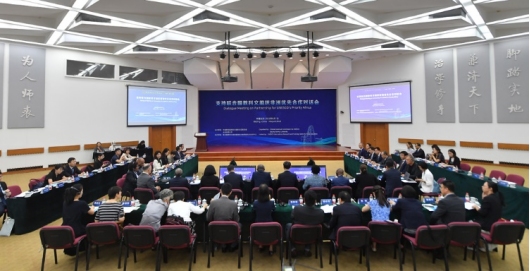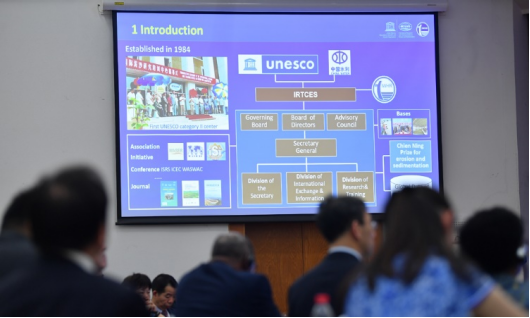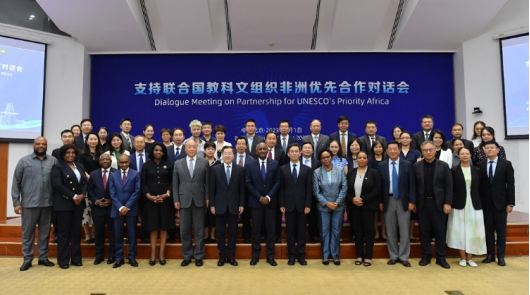The Dialogue on Supporting UNESCO's Africa Priority Cooperation was
held in Beijing on August 1. Co-hosted by the Chinese National Commission for
UNESCO and Beijing Normal University, and organized by the UNESCO International
Research and Training Center for Rural Education, the event brought together
approximately 60 participants. Attendees included Mr. Firmin Edouard Matoko,
Assistant Director-General of the Africa Department and External Relations of
UNESCO; Mr. QIN Changwei, Secretary-General of the Chinese National Commission
for UNESCO; Mr. ZHOU Zuoyu, Vice President of Beijing Normal University;
ambassadors and counsellors from African countries accredited to UNESCO
(including Angola, Gabon, Mali, Cape Verde, Ethiopia, and Mozambique); Mr. YANG
Jin, China's Ambassador to UNESCO; Mr. DU Yue, Senior Adviser to the Assistant
Director-General of the Africa Department and External Relations of UNESCO; representatives
from corporate partners based in Beijing including the IRTCES, other UNESCO
Category 2 Centers, Chairs, and faculty from Beijing Normal University. The event
focused on exploring ways to strengthen exchanges and cooperation with Africa
under the UNESCO framework.

African ambassadors and counsellors accredited to UNESCO delivered
speeches and shared insights on key priorities and challenges in Africa's development,
progress and difficulties in implementing the "Africa Priority"
strategy, cooperation between African countries and China on UNESCO platforms,
as well as their specific needs and expectations.

IRTCES introduced its historical background and cooperation
platforms, reviewed and outlined future cooperation with African countries in
areas such as project collaboration, technical consulting, international
conferences, training programs, global databases, academic journals, education,
and popular science. It also confirmed shared goals aligned with water-related
targets of the UN 2030 Sustainable Development Agenda and priority areas of
UNESCO's IHP IX (2022–2029). Other Category 2 Centers and UNESCO Chairs
presented their cooperation with UNESCO in education, cultural heritage
protection, natural resources, and digital technology—with a focus on projects
in Africa—and shared plans for future collaboration.
Participants agreed that China and Africa share a profound friendship,
a long history of cooperation, and a solid foundation for collaboration. They
expressed hope to use this dialogue as an opportunity to deepen cooperation
under the UNESCO framework, further advance UNESCO's Africa Priority strategy,
and effectively support Africa's development.


